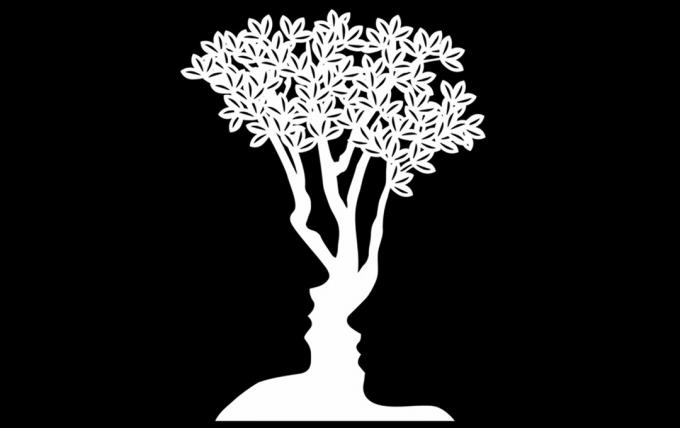Lygia Fagundes Telles, Brazilian writer, was born on April 19, 1923, in Sao Paulo. He published his first book of short stories — Basements and townhouses — in 1938. Graduated in Law, worked as a prosecutor of the Social Security Institute of the State of São Paulo, she was president of the Brazilian Cinematheque and was part of the commission that, in 1977, handed over to the Minister of Justice the Manifesto of intellectuals, petition against censorship.
The writer, member of the Brazilian Academy of Letters and winner of awards like Jabuti and Camões, she is part of the third generation modernist (or postmodernism). Thus, their narratives are characterized by an intimate prose, centered on psychological dimension of the characters and, sometimes, marked by magical or fantastic realism, without losing sight of the vision politics and social of her time, because, as the author states: “I am, as a writer, a witness of our time and of our society”.
Read too: Clarice Lispector – writer famous for her intimate and epiphanic prose
Biography of Lygia Fagundes Telles
![Lygia Fagundes Telles. [1]](/f/bce972d5f6f89a40e474b14ae0061dcf.jpg)
Lygia Fagundes Telles born on April 19, 1923, in Sao Paulo. Part of her childhood lived in the interior of the state of São Paulo, due to her father's work, who was a public prosecutor. At the age of eight, she and her mother went to live in the capital and later in Rio de Janeiro, where she lived for five years. Still in adolescence, in 1938, with the financial help of the father, published your first book inTales — Basements and townhouses.
From 1939 onwards, she studied at the Superior School of Physical Education, at the University of São Paulo (USP), and also at the Largo de São Francisco Law School, in addition to working at the Department of Agriculture. After graduating from law school in 1945, she married her professor of private international law in 1947, Gofredo da Silva Telles Júnior (1915-2009), from which she divorced in 1960 and from whom she adopted the surname Telles.
Your first novel— stone circle— was published in 1954 and celebrated by critics. In addition to her career as a writer, Lygia Fagundes Telles also worked as an attorney at the São Paulo State Social Security Institute, a position in which she retired. Still, in 1977, was president of the Cinemateca Brasileira, the same year she led a committee of writers that handed over to the Minister of Justice the Manifesto of intellectuals, petition that repudiated thecensorship.
The novelist and short-story writer was elected to the Brazilian Academy of Letters in 1985, in addition to receiving the following awards:
National Book Institute (1958)
Tortoise (1965, 1974, 1980, 1995 and 2001)
International Women's Grand Prix for Foreign Tales (1969) — France
Candango (1969)
Guimaraes Rosa (1972)
Coelho Neto (1974)
APCA (1974, 1980, 2001 and 2007)
PEN Club do Brasil (1977)
Pedro Nava (1989)
Arthur Azevedo (1995)
APLUB (1995)
Camões (2005)
Most Influential Women (2007)
Dr. Maria Immaculate Xavier da Silveira (2008)
Juca Pato (2009)
Conrado Wessel (2015)
Lygia Fagundes Telles's literary style
Lygia Fagundes Telles is part of third generation modernist (or postmodernism). Thus, her works present the following features:
Intimate prose.
Existential conflict.
Inner stream of consciousness or monologue.
Characters immersed in doubts and uncertainties.
Fragmentation of the narrative.
Psychological dimension of the characters.
Focus on human relationships.
Sociopolitical contextualization.
magical realism or fantastic.
Read too: Carolina Maria de Jesus – author of the famous book storage room
Works by Lygia Fagundes Telles
![Cover of the book Ciranda de Pedra, by Lygia Fagundes Telles, published by the publisher Rocco. [1]](/f/faeae28bba8260f53b54bfd94f2d6e47.jpg)
basement and house (1938) — tales
live beach (1944) — short stories
the red cactus (1949) — short stories
stone circle (1954) — novel
Stories of the mismatch (1958) — short stories
summer in the aquarium (1963) — novel
before the green ball (1970) — short stories
The girls (1973) — novel
rats seminar (1977) — short stories
the discipline of love (1980) — memoirs
Come see the sunset and other tales (1987) — short stories
the bare hours (1989) — novel
The structure of the soap bubble (1991) — short stories
the dark night and more me (1995) — short stories
eight love tales (1996) — short stories
invention and memory (2000) — short stories
During that strange tea (2002) — memories
cloud conspiracy (2007) — short stories
Passport to China (2011) — chronicles
a burning heart (2012) — short stories
The Secret and Other Discovery Stories (2012) — short stories
See too: Júlia Lopes de Almeida – author associated with realism and naturalism
Phrases by Lygia Fagundes Telles
Next, let's read some sentences by Lygia Fagundes Telles, taken from an interview given to the magazine That is, in May 25, 2005:
"Loneliness is disgusting."
"In marriage, I think the wisdom is not to live in the same house."
"I'm not a bird or anything!"
"Third World, country of the poor and the illiterate."
"It is necessary not to lose hope, the dream."
"I was never very happy with myself."
"I have a vocation for joy, but it is a poorly fulfilled vocation."
“In order not to grow old, it is necessary to die young.”
→ And to Brazilian Journal of Psychoanalysis, in October 25, 2008:
"Women's literature is different from men's literature deep down in the roots, because women are more intuitive than men."
"Women want the freedom to follow their vocation."
"I am, as a writer, a witness of our time and of our society."
"Literature has helped me not to go crazy."
"I don't want to set my granddaughters a bad example, which would be the fault."
Image credit
[1]Rocco Publisher (reproduction)
by Warley Souza
Literature teacher
Source: Brazil School - https://brasilescola.uol.com.br/literatura/lygia-fagundes-telles.htm

